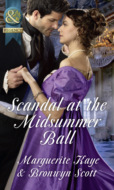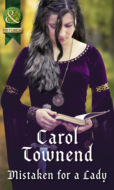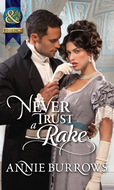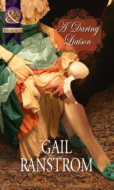Raamatut ei saa failina alla laadida, kuid seda saab lugeda meie rakenduses või veebis.
Loe raamatut: «Dragon's Court»
She closed her eyes and pictured him.
Dickon was a man to rely on, a man many women must have known—and loved—
She shied from the thought. Such a man was not made to marry. Any woman trusting enough to love him could soon find her heart broken when she became a widow. No, whatever her father wished, she would not allow herself to become fond of Richard Allard. She must dismiss all tender thoughts of him from her mind and concentrate on acquitting herself well at Court and—possibly—finding herself a wealthy and steady suitor who was as desirous of achieving success and a comfortable existence as she was herself.
Dragon’s Court
Joanna Makepeace
MILLS & BOON
Before you start reading, why not sign up?
Thank you for downloading this Mills & Boon book. If you want to hear about exclusive discounts, special offers and competitions, sign up to our email newsletter today!
Or simply visit
Mills & Boon emails are completely free to receive and you can unsubscribe at any time via the link in any email we send you.
JOANNA MAKEPEACE
taught as head of English in a comprehensive school before leaving full-time to write. She lives in Leicester with her mother and a Jack Russell terrier called Jeff, and has written over thirty books under different pseudonyms. She loves the old romantic historical films, which she finds more exciting and relaxing than the newer ones.
Contents
Chapter One
Chapter Two
Chapter Three
Chapter Four
Chapter Five
Chapter Six
Chapter Seven
Chapter Eight
Chapter Nine
Chapter Ten
Chapter Eleven
Chapter One
1499
Anne would have managed the rescue of the kitten without any need for assistance had not the hem of her gown caught on a branch of the apple tree she was climbing and caused her to lose balance and, for a dizzying moment, hang almost head down in space. She caught desperately at a lower branch and managed to pull herself to safety again and stayed for a while, winded, clutching at the rough bark of the tree’s stout trunk for dear life.
She regained her wits and her courage again eventually and saw she was safely ensconced on a stalwart branch about halfway up. The trouble was that her hem was still caught and, as she looked down, annoyed, and began to tug at it viciously, she discovered that her efforts were decidedly endangering the steadiness of her refuge.
She slithered until she was half-crouched, half-seated, and surveyed the terrain around her. The kitten remained on the topmost branch where it had retreated from the threat of Ned’s dog. It mewed pitifully and Anne shook her head at it regretfully.
“I’m sorry, Kitty,” she murmured, “but, for the present, you’ll either have to manage to descend by yourself or stay where you are.”
Frowning, she peered round to discover that Ned and the dog were no where in sight. Her thirteen-year-old brother had declared his intention of fishing in the Nene and the hound pup had given up the chase, abandoned the kitten and run off in the direction of his young master’s whistle to heel.
Fortunately this part of the manor orchard was close to the path leading up to the house. Someone, Anne thought grimly, would be sure to come along soon and it had never been her way throughout her sixteen years of life to give way to uncontrolled panic. Still, her position here was not only precarious but uncomfortable.
The weather was fine and bright this September morning of 1499 but it was growing much colder than it had been earlier this morning and she shivered and blew on her fingers. Her back was securely placed against the supporting trunk but she dared not wriggle too hard lest the branch she was actually seated on gave way. She was, she judged, probably more than six feet from the ground.
Only yesterday her lady mother had organised the household servants into the picking of the orchard fruit and most of them even now were engaged in sorting and laying the apples and pears out carefully in attic and barn to keep throughout the autumn and early winter months ahead.
Anne was warmly wrapped in hooded cloak and thick stockings and petticoats beneath her warm russet gown but the chill wind was beginning to permeate the frieze cloth of her cloak and she wished a groom or Ned, returning, would come soon now and release her from her uncomfortable perch. She prayed, though, it would not be her father.
Recently she had displeased him on more than one or two occasions and her mother had warned her many times about hoydenish behaviour. Scrambling up the apple tree would be considered so, she thought, and gave a heavy sigh.
If she came under her father’s disapproving eye again it could mean a sore back and she would have only herself to blame. She had been irritable and difficult for weeks now and Ned had castigated her scathingly for causing her father’s anger to fall not only on her head but on his as well. It had been to get out of the way of the disagreeable atmosphere of the house that he had taken himself off to the river.
She bit her lip thoughtfully. Her discontent had made itself felt only since Dionysia Gresham, their neighbour’s daughter and Anne’s closest friend, had been conducted to her place in the Countess of Chester’s household where she would wait upon that lady and, in time, be found a suitable husband.
That should not be too long, Anne mused, for Dionysia was pretty enough and gentle and good tempered to boot. Anne missed her friend and envied her her good fortune, and bitterly resented the fact that her own father had made it very plain that such a life amongst the great ones of the realm could never be hers.
A sound beneath her caused her to break off her reverie and glance cautiously downwards.
A man was peering up at her, shading his eyes from the glitter of the low September sun. She could not move sufficiently to have a clear view of his face but she could see he was wearing a brown hooded frieze cloak over a leather jack, stout brown woollen hose and that his leathern boots were mired with dust. His hood had fallen back and she saw he had a thick crop of untamed brown hair.
“Mistress Eve,” he called gaily, “are you willing to offer me the apple of temptation?”
He had been carrying a canvas pack of some sort which he had deposited at the foot of the tree as he stood, hands on hips, regarding her. He was possibly a travelling chapman, she decided. She did not know him and if he could be persuaded to rescue her before anyone came who did, she would be at a greater advantage when explaining to her mother about the tear in her gown.
She said tartly, “You can see surely, fellow, that all the apples are picked. My hem is caught on that branch. Please free me.”
He looked round for the offending branch and made a sign.
“I see it. Stay where you are, quite still. That branch you are resting on looks somewhat too frail to hold your weight much longer. Hang on to the trunk.”
Did he think her a fool? she thought dourly. Of course she intended hanging on for grim life. Once he started to shake that lower branch it could unseat her.
She saw now, with some trepidation as he approached the tree, that he was a big man, powerfully built, and she prayed he would not use too much effort in disentangling her hem and cause the bough to shake further and dislodge her. In actual fact, he proved to be surprisingly gentle and dextrous. He was tall enough to reach up and free the hem without needing to climb and Anne was surprised when he called up to her that the material was now free.
“You should manage to climb down, mistress, unless you are scared to do so. If so, I’ll come up and fetch you.”
“Certainly not,” she snapped. “I can manage. I’ve been climbing trees all my life.”
“Indeed?” The voice sounded amused and she noted that it was not a peasant’s voice, but deep pitched and without obvious dialect. Certainly he did not come from Northamptonshire, she determined. Possibly if he were a travelling chapman he would have lost his own dialect and adopted others as he moved around from place to place.
Now that she was free to descend she would rather have done so in privacy. She peered down uncertainly as the newcomer stood slightly away from the tree trunk now, hands on hips, regarding her. There was no help for it, she must climb down under his amused gaze. She could hardly dismiss him, as she would have done had he been one of the Rushton men.
It was more difficult than she had thought, for she had stiffened during the uncomfortable moments she had spent on her precarious perch. She almost fell the last few feet. The stranger stepped immediately close and, putting his arms around her waist, drew her gently to the ground.
She stood for a moment with her back to him, leaning against the trunk, then breathlessly swung round to thank him.
“That was well done,” she said grudgingly. “You can let go of me now. I am quite safe.”
Grinning, he did as she requested and made to move back to his pack.
“I suppose you can climb well?” she demanded and he turned, eyebrows raised to regard her again.
“Tolerably well, mistress. Like you I have been climbing trees for most of my life though not, I must say, so much recently.”
She chose to ignore his pithy though oblique reference to her youth. She pointed upwards to the topmost branch.
“Can you get up and rescue the kitten?”
He shaded his eyes again then distinguished the animal shaded by the leaves now turning from green to golden brown.
“I suppose so,” he said and she noted again the tinge of amusement in his tone, “but in my experience cats usually manage to descend without help if you leave them alone. He managed to get up there by himself, he’ll come down by himself.”
She drew in a sharp breath of annoyance. “Why do you think I went up there, if not to fetch the kitten? He is very young and frightened. He ran up when my brother’s dog barked at him.”
“Ah, in that case—” He grinned and, throwing back his cloak and hood, approached the tree again and began to climb steadily.
She stepped back to watch him, a little alarmed now for his safety. He was no youth and might well not be so agile as Ned. Perhaps she should not have ordered him to climb. He seemed skilful enough, swinging easily from branch to branch after first testing to check whether each would stand his weight, which was considerable. The kitten seemed reluctant to trust him at first and retreated along the top branch, mewing pitifully.
Anne heard him utter a quick curse then he leaned closer to the frightened animal and began to murmur to it beneath his breath. After one or two moments the kitten allowed itself to be lifted up and he thrust it into the opening of his leathern jack and began to descend nimbly. Landing gracefully for so big a man, he handed the quivering bundle of black fur to her with a little bow.
“Safe and sound if still a little alarmed. Is he yours? You must keep your brother’s dog under control.”
Her tone was haughty as she replied, “He is one of our courtyard cat’s litter. Cato only wanted to play. He’s little more than a puppy himself.”
The man was looking at her appraisingly and she flushed darkly. How dared he stare so insolently? Obviously she was not looking her best for she could feel that the wind had caught tendrils of her hair and pulled them clear of her white linen cap and her gown and cloak had not been improved by close contact with the tree trunk. Impatiently she pushed back her hair and pulled her hood into place.
He had a broad, open countenance, dark skinned as one would expect of a man who had stayed long out of doors, particularly during the summer months. His forehead was high and broad and his nose beaklike, a little craggy. His most attractive features were his wide-spaced grey eyes and a full, generous mouth, surprising in that very masculine face. The chin was firm and well chiselled and bore a decided cleft. It was an interesting face, she decided, and tried to guess his age. There were little laughter lines around the eyes and deep clefts from nostrils to the corners of his mouth. He was well past his twentieth birthday, she thought, but he was not old, not even middle aged.
For his part he was in no doubt about her age. She must be sixteen now or almost so. The last time he had seen her she had been still a child, clinging to her mother’s skirts; now true womanhood was almost upon her. Like her lady mother, she was dark. The thick masses of her hair streaming below her cap well past her waist had not been braided and the autumn sun glinted on the waving tresses, touching the blue-black gloss with touches of gold.
She had her mother’s creamy complexion, too, and a lovely oval-shaped face with strongly marked but fine features and her father’s startlingly blue eyes. She stood uncertainly, holding the kitten which was wriggling and scratching in her too-tight hold, at the same time trying to clutch the billowing folds of her brown frieze cloak about her slender form.
He had expected her to be tall and slim, for both her parents, Sir Guy Jarvis and Mistress Margaret, her mother, were tall and he could see that her young breasts, despite her efforts to hold her cloak close and hide her form from him, were taut and firm, pushing against the stuff of her russet gown. They would soon be looking for a husband for her, he thought, and sighed a little, inwardly. That would be no easy task for Sir Guy, under the present prevailing circumstances.
She moved a trifle uncertainly as if she was not sure how to dismiss him.
“You have come far, sir?”
White teeth gleamed in an answering smile in that dark complexioned face. “From the north,” he said evasively.
She hesitated. “My father is Sir Guy Jarvis and my home, Rushton Manor, only a short distance from here. You have done me a service. If you come to the manor I am sure our servants can provide you with a meal. You must be hungry.”
He gave her that little odd bow in answer which was in no way servile.
“Thank you, Mistress Jarvis.”
He shouldered his bag and moved beside her down the path until they reached the gatehouse and passed into the courtyard of Rushton. The house faced them, half-timbered, the undercroft of mellow Northamptonshire stone. The kitten scratched Anne deeply and ungratefully, sprang from her arms and shot off in the direction of the stables. She gave a startled cry. Her companion turned at once to see what had caused her distress and she sucked at the wound on her hand.
“Little beast,” she remarked ruefully, as he bent to examine the hurt.
“Cat scratches can be nasty,” he warned. “You must ask your lady mother for some tansy salve.”
She nodded. His large hand was holding her slender small one very gently and she felt suddenly uncomfortable in his presence. This stranger had a way of making her aware of her own childish folly in attempting to rescue the kitten without uttering one word of disapproval—yet why should she heed a passing stranger, an inferior to boot? She was about to point out the way to the back door into the kitchen quarters and quickly rid herself of his disturbing presence when her father’s voice came from the top of the steps leading up to the hall.
“Anne, where have you been? Your mother has sent out more than one woman to find you—” He broke off abruptly, staring at the two of them across the courtyard; then, with that grace of movement Anne always associated with her handsome father, he leaped easily down the steps and covered the distance between them quickly.
“Dickon? Dickon Allard, is it really you?”
The newcomer laughed. “Indeed it is, Sir Guy. It seems a long time since I came to Rushton Manor.”
Anne watched in dawning horror as her father took the stranger’s strong brown hands into his own grasp and squeezed them affectionately, then he pulled the man close and clasped him to his heart.
“You are welcome as always, Dickon, you know that. Margaret will be delighted to see you. Come in immediately and get warm near the hall fire. We must order food for you at once. How far did you travel today?” He stepped back apace, frowning, somewhat puzzled. “Where is your horse, man?”
Again Anne heard that deep-throated chuckle. “My mare cast a shoe about a mile and a half back, so I led her to the nearest village smithy. The smith said it would be quite a long job so I thought I’d come on here and fetch her later. I was stiff in the saddle, have ridden from Leicester this morning; the walk has loosened me up.”
Anne could not meet the man’s eyes. Richard Allard, the son of her father’s friend, Sir Dominick Allard, the man whom Sir Guy Jarvis had served for years as squire—and she had treated him like a servant! Her blue eyes flashed dangerous fire. He must have known well enough who she was.
Why hadn’t he announced himself immediately and not left her to jump to so unfortunate a conclusion? How was she to know? The man had arrived on foot, plainly dressed, if not shabbily, and carrying his own valise like a pedlar his pack. Could she be blamed for treating him so condescendingly?
Her father was regarding her and she flushed under his critical scrutiny.
“I see you and my Anne have met already. I trust she made you welcome?”
Anne waited in dread for the visitor’s reply. He was facing her now, his grey eyes dancing with amusement, doubtless at her discomfiture.
“Mistress Anne greeted me very warmly, Sir Guy, and, like you, was very anxious to assure my comfort. She instantly thought how hungry I must be feeling.” He turned to his host as a servant hastened up to relieve him of his valise. “In truth, I am not hungry, just saddle sore, as I said, but I broke my fast at the village inn where I waited for the smith’s verdict about my mare. I can certainly wait until supper, but I would welcome an opportunity to bathe.”
“Of course, of course. Come first and greet Margaret. How are your parents? I trust your father’s old wound does not still trouble him?”
“He still limps, sir. I’m afraid he will carry that reminder of the final charge at Redmoor until his dying day but in himself he keeps well and my mother is blooming, as ever. To me she is the epitome of the Nut Brown Maid of the ballad. Each time I come home to Wensleydale from my travels I expect to see her changed, or, at least, some traces of grey in her hair, for my father’s temples are as grey as a badger’s these days, but she is as lovely as I remember her when I left.”
Anne was aware that both her father and Sir Dominick Allard had served in the household of the late King Richard and had fought side by side in his last fatal battle and defeat at Redmoor near the little market town of Bosworth in Leicestershire in 1485.
Sir Dominick had taken a severe wound to his thigh in the charge in which his King had met his death, a wound that still troubled him, one that had kept him from fighting in Lord Lovell’s attempt the following year at East Stoke near Newark to place the pretender Lambert Simnel on the throne. That battle had proved as ill fated as Redmoor and King Henry had triumphed again. Anne had heard it whispered about the manor that her father had taken part in it, but had managed to return home in secret without his treason being discovered.
“I’m delighted to hear they keep well and hope, one day soon, to see them both again.”
Sir Guy linked arms with Richard Allard and led the way up the steps into the manor hall, Anne trailing behind. She looked anxiously round for Ned to join them but he was still remaining out of the way near the river. Sweet Virgin, her mother would demand an account of her meeting with their visitor, especially in view of the condition of Anne’s torn gown and her green-stained cloak. What could she say, how explain her boorish behaviour?
So far Richard Allard had kept the circumstances of their encounter to himself. Would he continue to do so? She did not deserve so much consideration. Now that she thought about it, his very manner and bearing, as well as his speech and mode of address, should have established him in her mind as a man of standing. How could she have been so crass?
Her beloved father appeared almost slight and spare beside this bear of a man. Sir Guy’s fair hair, as ever, was dressed elegantly and his handsome features were alight with pure pleasure at Richard Allard’s arrival. He led him swiftly to the comfort of the blazing fire in the hall’s fine heraldically decorated fireplace and summoned a servant to bring ale and wine and take the visitor’s cloak.
“Anne, go at once to the solar and inform your mother that Dickon Allard is here. She will issue orders for the preparation of a chamber. Where is Ned? He should be here too to greet our honoured guest.”
“Fishing in the Nene,” she said promptly and, meeting Dickon Allard’s smiling eyes, made him her first quick curtsy. Then, grateful to be out of his presence for a while, she sped off to the solar to break the news to her mother. With her hand on the door knob she reflected that perhaps it would have been better had her father allowed her to remain in the hall. At least she would have heard what Richard Allard said to him.
Margaret Jarvis looked up hastily as her daughter entered. She was sewing at the dark blue velvet of a new-fashioned French hood and was alone. Her dark brows rose in interrogation as Anne swept in, her cloak billowing behind her.
“There you are. I have been looking for you. I wished to try this on you for size. Goodness, child, what have you been doing to your clothes? You know your father’s means are limited these days. You should take more care. It is bad enough that Ned tears his hose, but you should know better.”
“I’m sorry, Mother, but a kitten got caught up a tree and just would not come down. I had to climb. There was no one else nearby. He is safe now.”
The child was breathless and evidently excited. Margaret was surprised. Just lately nothing had excited Anne or pleased her. Indeed, Margaret reflected, had she behaved so badly as her daughter had done recently, her own father would have taken a switch to her. Guy had held his hand and Margaret had admired his patience with the girl. Her own had been fast running out.
The whole of the trouble lay in the fact that Dionysia Gresham had left their neighbouring manor to enter the Countess of Chester’s household and would, most likely, attend her mistress at court at Westminster. Anne sorely missed her friend’s company but there was more to it than that. Although the reasons for her own ineligibility to attend a noble household had been explained to her often enough, Anne had never really accepted them.
“We have a visitor,” Anne announced breathlessly. “Richard Allard, from Yorkshire, isn’t it?”
Like her father’s, Anne’s mother’s face expressed immediate pleasure at the news.
“Richard, here? Oh, how good it is to have him. I shall have news of Dominick and Aleyne. It is far too long since we heard from them.” She rose at once, laying aside the unfinished hood. “Your father has been informed?”
“Oh, yes. He is with him in hall. He sent me to fetch you. Father says a room must be prepared for him.”
Again Margaret Jarvis’s dark brows rose. “I did not hear a horse enter the courtyard.”
“No, he is on foot. Apparently his mare cast a shoe. Father will send a groom to fetch her from the smithy later.”
Margaret was moving unhurriedly towards the door of the solar. Anne admired her stately passage in her dark burgundy velvet gown. It suited her well, though the tight-fitting sleeve cuffs were somewhat rubbed and Lady Jarvis still affected the old style of headdress: small cap, hennin and veil.
Though Anne was aware of the latest changes in fashion through Dionysia who took careful note of all news from Court since tidings of her impending term of service in the Earl of Chester’s household, she was aware that her mother remained as lovely as her father had declared her to have been when he had wed her at Westminster, more than sixteen years ago, in the late King Richard’s time, and in his very presence.
Anne was fully aware that it was this very allegiance to the late King’s household and her father’s continued stubborn loyalty to the Plantagenet cause that had resulted in their present impecunious state here at Rushton.
Sir Guy Jarvis had been pardoned after Redmoor, for King Henry had shrewdly declared the beginning of his reign the day before the battle, thereby making all those who had fought for their King technically traitors. Anne’s father had survived the pursuit following the battle and managed to reach the comparative safety of Rushton, but the King’s officers had levied a swingeing fine from which the manor had never truly recovered financially.
The number of household servants and dependents had had to be cut to the bone and for eleven years Sir Guy was aware that his every move was watched by agents of the Tudor now living in Northamptonshire. Anne sighed resentfully as she faced the need for economy in her own dress allowance, which denied her new-fashioned garments like the ones her friend Dionysia had obtained in which to travel to her new household.
She would not have minded that so much if she had not to face the prospect of life here at Rushton, familiar and dear, but irritatingly dull. Anne had listened open-mouthed to her mother’s tales of life at Court and the intrigues and adventures that had befallen her there and wished that such a fascinating and exciting life could be hers.
The arrival of Richard Allard brought home further the need for all of them to guard their tongues and behaviour. The Allards, too, made little secret of their contempt for the Tudor’s claims and Anne wondered doubtfully what was the reason which had brought Richard here. Could it be to embroil her father into yet another secret plot against the King? She paled at the thought.
Only recently the arrest of the second pretender to the King’s claim, the man they called Perkin Warbeck, had caused fear and despondency to spread through those families who still doggedly supported the Plantagenets and Anne knew her mother constantly feared for her father’s safety.
How could she constantly live like that? Anne wondered. She could not. She wanted a settled, peaceful life, if not at Westminster, at least secure on her own small manor with her husband and children safe by her side. Yet she knew well that the neighbouring gentry would be wary of allying themselves in marriage with the disgraced Sir Guy, that her father would not find it easy to find her a husband.
She put to rights her appearance and joined her parents with their visitor in the hall to find that Ned had now come home and was seated near Richard Allard, listening intently to the tales of his recent travels. Anne experienced a momentary feeling of irritation that her brother should greet this stranger in so admiring a manner and regretted, more than ever, that she had had to appear before him in her old russet gown which had had to be pinned at the torn hem by her maid, Mary Scroggins.
Anne’s worst suspicions were confirmed as it was obvious from the line the conversation was taking that Richard Allard’s loyalties were cast in the same mould as her father’s.
Sir Guy was speaking as she entered and, at a signal from her mother, Anne seated herself on a stool by Lady Jarvis’s side.
“In Leicester did you manage to visit the Friary?”
Richard Allard took a pull at his wine cup and nodded. “Aye, I see the Tudor has not kept his word and had the promised memorial put on the tomb, but the King lies safe and snug and I paid for masses to be said for his soul.”
Anne had heard that King Richard’s body had been shamefully treated following the battle at Redmoor and had been brought back into Leicester town half-naked, across the neck of his own destrier, White Surrey, wearing a felon’s halter around his neck. His body had been exhibited for public view in the church of St Mary the Lesser, outside Leicester’s castle and finally buried by the Grey Friars within their enclosure.
On his rare visits to Leicester Anne’s father had visited the tomb, but had never once taken Anne to see it. She knew his visits there were viewed with disapproval by some of his neighbours, yet another mark against him for his commitment to the former dynasty.
King Richard III had been dead now for fourteen years. Surely, Anne thought angrily, her father and this man could allow him to rest in peace and not continue to antagonise the present occupant of the throne even in secret. If Sir Guy were to accept the situation without complaint it would be more likely that she, Anne, would be allowed to mix with her neighbours’ daughters and the prospect of a suitable marriage would be made possible.
It was all very well for Ned to talk boastfully of what amounted to treason, but he was still a boy and his life was unlikely to be blighted by his youthful opinions which, undoubtedly, would mellow with time. She glared at him as he pressed Richard Allard for more news of the world at large.
Richard Allard had clearly been recently from the realm but he was discreet and somewhat vague as to his wanderings. Anne was in little doubt that more than likely he had been at the Court of King Henry’s greatest avowed enemy, the late King’s sister, Margaret of Burgundy, at Malines.
Tasuta katkend on lõppenud.









